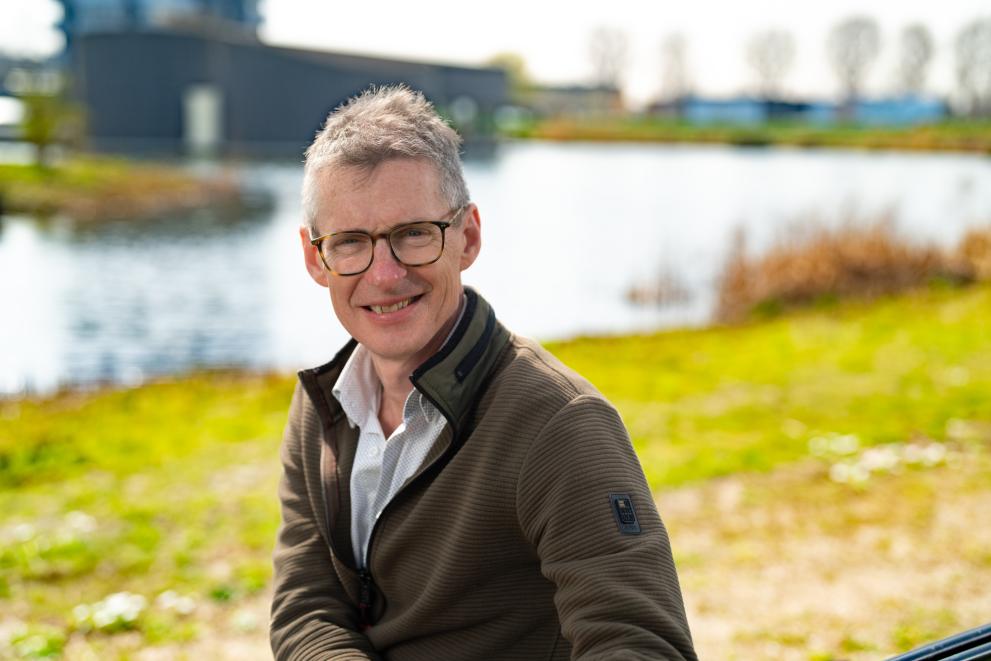
From globally cascading climate risks to European climate risk assessments
Ahead of the 7th DRMKC Annual Seminar on 21 November, DG ECHO held ‘a Forerunner’ event to look at the findings from two Horizon projects on climate risk.

Representatives of the CASCADES project team - Magnus Benzie (Climate Senior Research Fellow at the Stockholm Environment Institute, SEI), Hanne Knaepen (from the European Centre for Development Policy Management, ECDPM) and Ruth Townend (from international affairs think tank, Chatham House Chatham House) - considered the role of Europe in responding to cross-border climate impacts, particularly in the case of Africa. This was followed by a forward look at the CLIMAAX project, which begins this year, and will enable regions and communities to upgrade their capacity to perform climate risk assessments. Daniel Sempere Torres (Director, Universitat Politècnica de Catalunya) and Professor Bart van den Hurk (Scientific Director, Deltares and IPCC WG2 co-chair), talked us through how the new support facility is expected to work and how EU regions will benefit.
Felix Bloch (Head of Unit, Knowledge Network and Evidence-Based Policy, DG ECHO) chaired the event, with Philippe Tulkens (Head of Unit, Climate & Planetary Boundaries, DG RTD) providing closing remarks.
Magnus Benzie described how climate impacts such as drought, cyclone and wildfire have cross-border impact in three key areas: international trade, stability and conflict, and finance and business, all of which can result in cascading climate impacts in Europe.
Benzie gave three recent examples of this; in the Panama Canal, when strong El Niño weather events affected 53% of agricultural impact, in the Turkish straits, where proximity to conflict affected 12% of agricultural throughput, and the Suez Canal, where an amplified jet stream and storm in the region meant damage to the infrastructure and the canal being unnavigable for six weeks.
Hanna Knaepen considered the impact of climate cascading risks in Africa, and how the EU might make building system-wide resilience in its surrounding regions a strategic priority. She considered four challenges to this: finance, diplomacy and cooperation, knowledge and tools, and policies and plans. According to CASCADES, all of these elements are currently lacking to some degree in Europe’s approach to building system-wide resilience.

Ruth Townend took us through the CASCADES project’s four-step recommendations for the EU to better prepare for cascading climate risk:
1) Lay the foundations, and establish risk ownership;
2) Improve global responsibility and cooperation in this area; for instance, by increasing policy coherence, technical assistance and political engagement with partners, by formulating an EU Trade Resilience Strategy, and by mobilising EU development finance for climate adaptation and resilience;
3) Promote better governance for resilience;
4) Prepare society to develop resilient local economies and communities, and to strengthen cohesion and reduce inequality.
Townend concluded that although the EU had shown leadership in this area by investing in the CASCADES project, it is not adequately prepared for cascading climate risks. In the Consortium’s view, rapid systemic transformation is needed; both to limit climate impacts and to adapt to them. In a more positive message, Townend rounded off by emphasising that European policymakers now have an opportunity to affect systemic change in ways that support widespread, long-term resilience.
‘None of us can consider cascading risks of climate change as a problem for someone else while we get on with our day jobs. It is the responsibility of all of us."
Daniel Sempere Torres looked at how we can adapt climate planning for civil protection. By calculating a series of climate indicators based on events that had occurred in the past (such as wildfires, droughts and floods), they are able to project what could occur in the future. He gave the example of the high impact floods that have been seen across Europe over the last few years. CLIMAAX is creating a climate risk assessment (CRA) toolbox allowing experts to project and prepare for similar events; for example, rains of the same intensity, with increased frequency, or of the same frequency, with increased intensity.
Sempere Torres highlighted the need for the use of local data and expertise in these projections, as CLIMAAX was unable to do local studies itself due to its limited capacity. The challenge of the project was how to adapt this methodology to extend it to a maximum number of regions.
Bart van den Hurk outlined how a cascading fund would be available through the CLIMAAX project to support at least 60 regions and communities based on a criteria of diversity and needs. The first call for applications will be opened from 8 December until 8 March (followed by a second round in the longer term). He emphasised that regional climate risk assessments are extremely diverse; as a result, ‘Standardised flexibility’ has been chosen as CLIMAAX’s motto. The project will continue to ‘learn by doing’ and had already worked in five pilot regions, which helped to shape and apply the toolbox.
Philippe Tulkens rounded off by highlighting the need for EU research and innovation, mobilising funds by identifying their targets together with practitioners, and reaching out to the regions on the ground.

The 7th DRMKC Annual Seminar (‘Moving knowledge into action: a Roadmap to Disaster Resilience’) will take place at the Royal Library of Belgium on Tuesday 21 November.

The Knowledge Network editorial team is here to share the news and stories of the Knowledge Network community. We'd love to hear your news, events and personal stories about your life in civil protection and disaster risk management. If you've got a story to share, please contact us.
Risk drivers